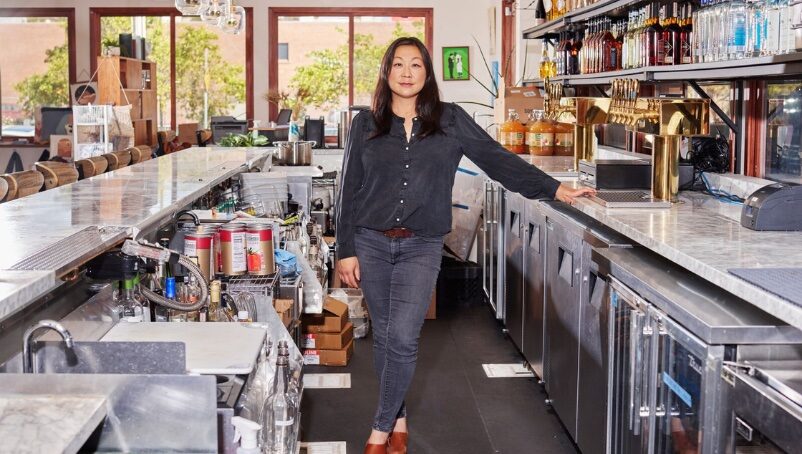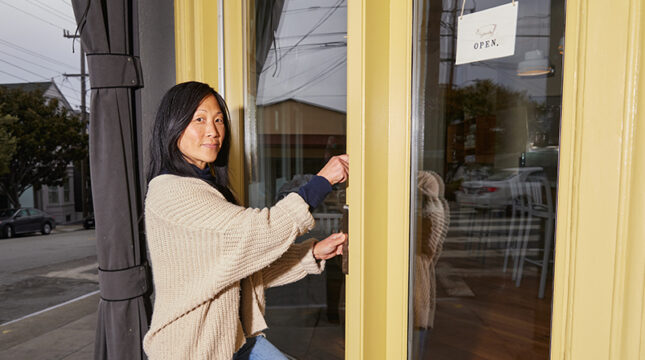Do you need an NJ liquor license to sell alcohol?
You must have a license issued by the New Jersey Division of Alcoholic Beverage Control (ABC) if you’re planning to serve alcoholic beverages in your establishment.
Getting the license can be a challenging and lengthy process primarily because New Jersey limits the total number of available licenses. Often, the most feasible route is purchasing a license from an existing holder, which can be a difficult and competitive endeavor.
The ABC has a “helpful” 85-page handbook for New Jersey retail liquor licenses. However, we’re going to simplify the process to ensure you get the right information.
How much does a New Jersey liquor license cost?
Finding a license for sale is the most expensive part of the process. Many licenses are “pocketed,” meaning someone is holding onto their license without running any business, hoping the license will become more valuable over time.
Due to the scarcity of licenses, you can pay up to $1 million or more — if you’re lucky enough to find one available.
Once you have a license, you’ll pay fees to the ABC for them to process your transfer application. Costs can vary depending on the type of license transfer you’re making and where your business is located.
First, there is a $200 upfront fee. You’ll also need to budget for the Annual License Renewal Fee, which costs between $250 to $2,500 and is decided on by your local municipality.
Then, if you’re doing a person-to-person or place-to-place transfer (that is, taking over an established business or relocating your own), you must also pay 10% of your Annual License Renewal Fee.
If you’re doing both a person-to-person and a place-to-place transfer (when you purchased a license and are opening a new place with it), you must pay 20% of your Annual License Renewal Fee as part of the application process.
How to get a liquor license in NJ
Unlike other states, New Jersey does not distinguish between beer, wine, and hard liquor licenses. While various liquor licenses are available, Type 33 – Plenary Retail Consumption License is what you want if you’re opening a bar or restaurant.
The first step to getting a liquor license in New Jersey is finding a seller willing to transfer theirs. Once you’ve identified a seller, the process, while lengthy, is quite direct:
- Enter into a written purchase and sale agreement for the license.
- Secure the seller’s written consent to transfer the license.
- Complete and submit New Jersey’s 12-page application, along with the necessary fees.
- Publish a Notice of Intent to Transfer in a local newspaper twice, a week apart, to invite public comments or objections
- Apply for a Tax Clearance Certificate from the New Jersey Division of Taxation. Your local municipality can’t approve the license transfer without this certificate.
- Allow a background check by the local police department, including fingerprinting.
- Participate in a public meeting where the local municipality will decide on the authorization of the license transfer.
The time it takes to get a liquor license varies by the location and specific circumstances of your establishment. Once you locate and purchase a license, it can take anywhere from 30 to 120 days for the ABC to complete the transfer process.
Remember: New Jersey has a cap on the number of licenses it issues, allowing one for every 3,000 people in a given municipality. With nearly all types of eateries that sell alcohol wanting a Type 33 license, landing one for your own business can be difficult.
New Jersey law allows licenses to be transferred, but only with approval from the ABC. The limits New Jersey puts on liquor licenses and the fact that many businesses are competing for the same license make buying a license from someone else pretty much the only option.
Make sure the license you purchase is from the municipality where you want to be doing business. While you can convey licenses from location to location within a municipality, the transfer of a New Jersey liquor license from municipality to municipality is not allowed.
Keep in mind that purchasing a transferred license is only the first step. The ABC must approve it before your license is valid.
Insurance for a New Jersey liquor license
Once you’ve located and purchased a liquor license, fulfilled ABC approval requirements, and finally got your business up and running, it’s time to protect it. The right insurance package can safeguard your hard work.
Liquor liability insurance
With dram shop laws on the books in New Jersey, it’s smart to have liquor liability insurance. If you’re found responsible, your policy can pay for property damage, injuries, and court fees.
General liability insurance
General liability insurance is often the first kind of insurance a business purchases. It protects against the most common incidents that occur when dealing with the public, such as slip and fall injuries.
Workers’ compensation insurance
In New Jersey, if you have employees, the law requires you to have workers’ comp insurance. It steps in to cover expenses if an employee is injured or becomes ill because of their job.
Commercial property insurance
More than just protecting your building, commercial property insurance covers your goods, gear and inventory so you can get back to business fast.
New Jersey liquor license requirements
To qualify for a liquor license in New Jersey, applicants must satisfy several criteria:
- Be at least 18 years old.
- Have a clean record, specifically free of convictions related to moral turpitude.
- Fully disclose all interests in the license being transferred.
- Avoid holding ownership, or serving as an officer or director, in any corporation that manufactures or wholesales alcoholic beverages in New Jersey.
- Limit interests to no more than two retail licenses, except as allowed by specific laws.
- Ensure you haven’t had any previous license revoked for a period of two years or more.
- Not be a law enforcement officer or any individual with responsibilities that include enforcing ABC laws or regulations.
NJ liquor license renewal
Liquor licenses in New Jersey are valid from July 1st to June 30th of the following year. To renew, you’ll submit a simple one-page renewal application and fees. Make sure to send it in before your license expires to allow your municipality time to pass a renewal resolution.
In addition, all retail licensees must obtain a Tax Clearance Certificate from the New Jersey Division of Taxation before renewing the license. A municipal issuing authority can not even consider a renewal application unless a Tax Clearance Certificate is received.
The renewal cost is $200 plus the Annual License Renewal Fee, which can range from up to $2,500, depending on the municipality.
New Jersey liquor license liability and dram shop laws
New Jersey’s liquor liability and dram shop laws can hold businesses accountable for selling or serving alcohol to individuals who later cause injuries or death due to intoxication. Specifically, a business may face responsibility if they serve alcohol to someone who is clearly intoxicated or to a minor.
For example, imagine a group of friends visiting your restaurant, ordering multiple rounds of drinks and having a good time. One member of the party becomes visibly intoxicated, but your server continues to serve the person because their friends say they won’t drive. When the person leaves, they get behind the wheel and are involved in a car accident, injuring another driver.
Under New Jersey’s dram shop laws, your business can be sued by the injured driver because your employee continued to provide alcohol to the visibly intoxicated person. While it may seem unfair, your business could be held responsible for this accident.
The only requirement New Jersey has for alcohol servers is that they are over 18. No other training or education is mandated by law.
How NEXT helps support New Jersey bars, restaurants and food and beverage businesses
NEXT has customized small business insurance on tap. We provide tailored insurance packages, including liquor liability insurance, alongside our general liability coverage.
Our user-friendly online platform helps you quickly get a quote, explore your coverage options, and purchase just the insurance you need. You’ll have your certificate of insurance in about 10 minutes and 24/7 access to your policy via web or mobile app.
Start a free quote with NEXT.





